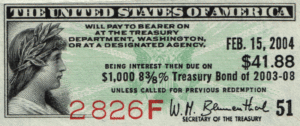Let’s say that you no longer trust your currency exchange to host your Bitcoin wallet and you don’t trust a Trezor or Nano hardware wallet. You don’t trust your memory and you don’t trust your kids. And you certainly know better than to keep your wealth in your PC or phone. That would be downright crazy—right? What can you do?!
A growing number of people are printing paper wallets. It is the ultimate form of security. Some individuals even delete their cloud wallet, leaving everything to a string of hex characters or a QR code printed onto a slip of paper. (NB. You had better be certain that you and a few trusted individuals know how to find that piece of paper!)
But here’s an interesting mystery. If you print the paper wallet off-line and delete your other wallets, then how can the blockchain ‘know’ that you have changed wallets? The short answer: It doesn’t and you haven’t!
Let’s explore a bit deeper…
- The deed to your house is stored and maintained by a registry. It is housed in a court house or other government building.
- With a bearer bond, a certificate in your posession is the actual item of value.
But, in both cases, the fact that you made a photocopy of your deed or corporate bond is not of any consequence to others. It is the same with a Bitcoin wallet. (In this case, the ownership record is netiher in a government warehouse nor in your posession. It is crowd-sourced).
 Printing out a paper wallet does not change your wallet ID. The paper wallet is simply another method of storing and retrieving the proof that you own a part of a mathematical solution set—That is, you know the solution to a problem.
Printing out a paper wallet does not change your wallet ID. The paper wallet is simply another method of storing and retrieving the proof that you own a part of a mathematical solution set—That is, you know the solution to a problem.
Your paper wallet is just a copy the keys to your wealth. Of course, you may choose to destroy the other keys, that’s your business. No one knows or verifies that you still have access to your stored knowledge or how you stored it. It’s up to you to maintain access to the “document”. The blockchain only records a transfer of ownership from one wallet to another at the time of a payment transaction.
Got it? I hope you like the metaphors. I am fairly proud of myself for this explanation.
Philip Raymond co-chairs CRYPSA, publishes A Wild Duck and hosts the New York Bitcoin Event. Last month, he kicked off the Cryptocurrency Expo in Dubai. Click Here to inquire about a live presentation or consulting engagement.
